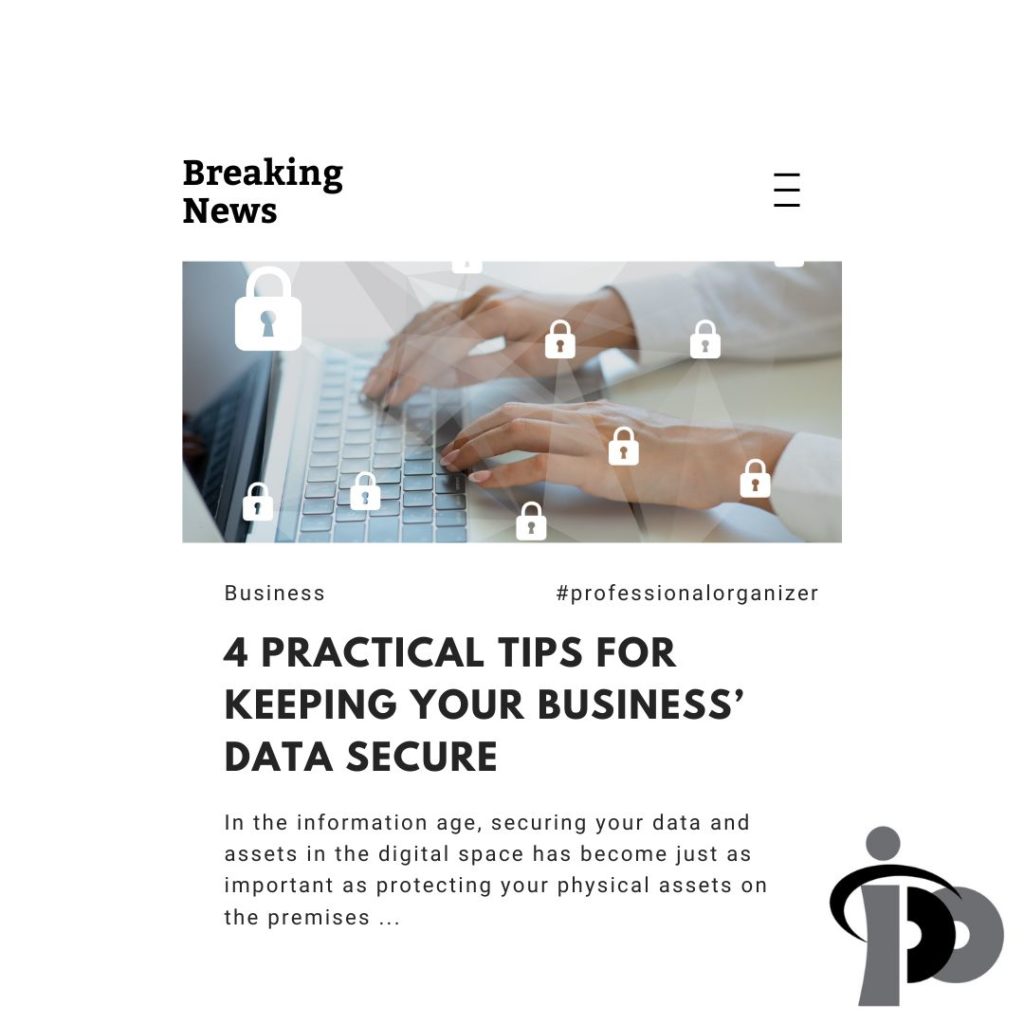4 Practical Tips for Keeping Your Business’ Data Secure
 In the information age, securing your data and assets in the digital space has become just as important as protecting your physical assets on the premises. Cybersecurity has become an integral part of most business operations, and as such, various strategies and approaches have emerged.
In the information age, securing your data and assets in the digital space has become just as important as protecting your physical assets on the premises. Cybersecurity has become an integral part of most business operations, and as such, various strategies and approaches have emerged.
Suppose you’re a business owner who recently shifted to cyberspace to adapt to the new normal. In that case, you’re probably thinking of ways to keep your organization safe from malicious attackers. Here are four practical tips for keeping your business data secure to get you started.
#1 Incorporate cybersecurity in planning
Business data security should also be heavily considered by those in the planning stage of establishing a business. By providing data security systems, they can plan and source ahead of time, allowing them to find the best options available. Not only do they save on costs, but their proactivity drastically reduces the risks of falling prey to the countless data breaches and leaks occurring every day.
#2 Start investing in the latest tools
From software-as-a-service (SaaS) solutions for your cloud-based assets to applying for a cyber liability insurance policy, a range of tools can keep your business safe. From preventing breaches and leaks from happening to protecting your organization in the event of one, you have to identify which of these mechanisms can help you and your business data maneuver the increasingly dangerous digital landscape.
One particular investment that pays for itself, in the long run, is a data loss prevention (DLP) tool. It refers to a holistic approach–including its processes, systems, and tools–that makes sure that any sensitive data you receive, store, process, transmit, and return is not lost, misused, or even accessed by unauthorized entities.
However, it is also important to recognize that every business has its unique needs and requirements. As such, you must choose the right DLP tool that is specifically tailored for your business. No need to worry, though, since you can always consult with a professional to identify the features and capabilities you will need.
#3 Educate your employees
Educate your employees, even if you are the only employee! As with every aspect of your business, your employees are the cornerstone that makes everything happen. It is important at this point to launch initiatives that will inform them of their responsibilities as well as the things they can do in keeping the entire company safe. This can also be said for securing your business’ data.
From simple seminars on proper account management, these efforts to inform your staff and team members can go a long way. The IBM Cyber Security Intelligence Index report states that almost 95% of security breaches are caused by human error. Whether it’s downloading malicious files from untrusted sources to using public connections to log into their company accounts, strengthening your employee awareness is tantamount to strengthening your digital defenses.
#4 Enlist the help of professionals
Whether you hire them to be your in-house specialists or tap a cybersecurity agency, the best way to move forward is always to have professionals on your side. These people are becoming more and more vital to businesses nowadays. Cybersecurity experts can help you plan a business with a secure data infrastructure, regularly checking your systems for issues and vulnerabilities and keeping your organization updated with the latest tools.
They can also improve the efficiency of your other efforts to keep your business data secure. For example, trained professionals with relevant experience are generally better at articulating the value of keeping passwords safe and secure, something indispensable if you’re looking to educate your employees about data security practices. They can help assess your business’s best DLP tool on network security systems. Whether in-house or outsourced, cybersecurity professionals can work better with industry professionals in implementing new security features or updating your existing ones.
Conclusion
Business data security should no longer be a reactive response or an afterthought for entrepreneurs. By being proactive about it, you can adopt complete and reliable strategies to keep sensitive information safe. Although it appears costly with the associated upfront expenses, imagine how it pays for itself by saving you from potential data breaches that cost money and, more importantly, the trust of your clients.
By Guest Blogger Kat Sarmiento, Katrina’s Content Studio, @katsarmiento007
